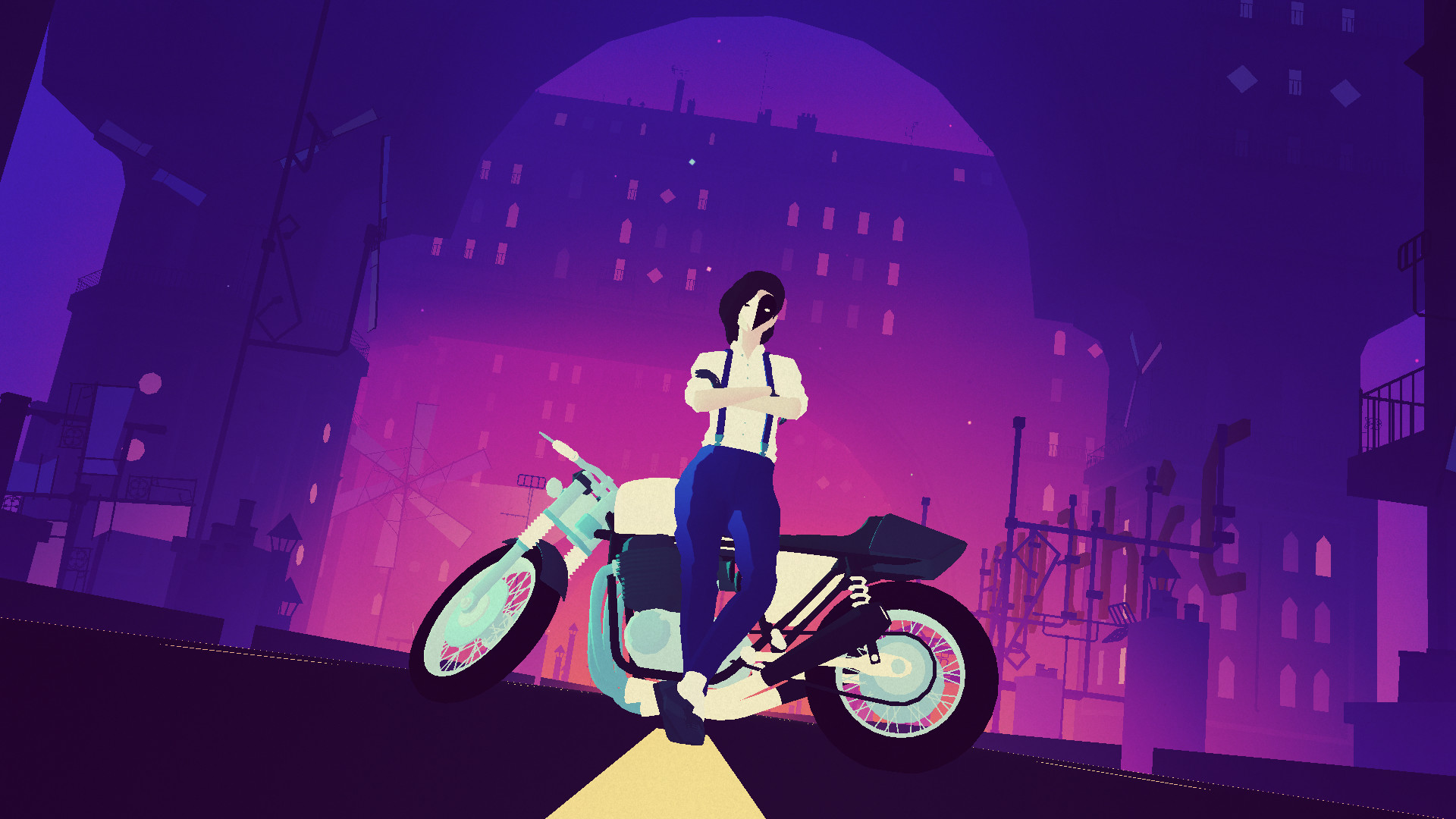‘Sayonara Wild Hearts’ and the Masks We Wear to Protect Ourselves
Credit to Author: Nicole Clark| Date: Thu, 02 Jan 2020 16:25:38 +0000
Through the rest of December and into early January, we're going into hibernation. But every day, we'll have a new podcast for you to listen to, and sometimes, an article to read. You can keep track of everything we're talking about to look back on the past year (and decade) right here.
Recovery feels like wearing a mask. When you love someone, you inevitably form a new identity around that person. In its best form, it is symbiotic, supportive, and beautiful. At its worst, it's an ugly minimization, your partner undermining you and turning acts of kindness into polemics about your desperation. Neither context makes it easy to remember who you are outside that person, or makes the separation less destabilizing. And so the mask becomes a superpower of imperviousness, permission to be someone entirely new. Someone entirely better.
In the last song of Sayonara Wild Hearts’ “album” of levels, our heroine removes her mask, puts herself back together, and gets back on her longboard to joyously ride along versions of every single level,mending the enemies’ shattered hearts with a bevy of kisses. Playing it moved me to tears.
I wasn’t expecting the story to move me. Heartbreak is such well-trodden ground, so universal that, despite its certain devastation, it has become a banality in the world of storytelling. A heroine evolving into a masked hero after getting dumped seemed like a natural pairing for a game that is effectively an album,a medium that is often inspired by and used to cope with heartbreak. But I was crying with a vivid immediacy for how adeptly Sayonara Wild Hearts captured my difficulties of this year,a year that shattered my confidence in a way that was itself a form of heartbreak, and required an intricate mask to broadcast professionalism and growth.

It was difficult leaving my full-time job. Writing has always been my closest friend—a confidante, an outlet. All things I sought out of a companion or a lover. It is, itself, a kind of relationship, a barnacle ossified into a person. I had been salaried, and found a voice doing what I loved. It felt like a delirious privilege, one I never imagined having, and one I worried I might not find again in a shaky job market.
Against reason and good sense, my job had become as much of my identity as writing has always been. It is the natural endpoint of capitalism, the sheer, blunt force culmination of spending at least eight hours a day (usually more) doing the same something. It is even more pronounced when your career involves the very commodification of who you are as a person—what you represent, how your portfolio and online personality can personify it, how it can be made useful to a larger brand.
Sayonara Wild Hearts mesmerized and charmed me. I nodded along with the beat, giggled at each new conceit. I paused during the VR themed section, stupefied by the homage it paid to classic arcade games. It was the rare racing game that felt more intuitive than exacting. It was, in short, a joy to play.
I put on my mask. I entered a world of whimsy and color, combat ballet, and dizzying pyrotechnics, where my longboard became a tarot card, a motorcycle, an elk. I become wild, free, powerful, dangerous. I finally left notice after meticulously saving enough for a few months. I constructed a mask of resilience as a form of marketability, and crafted a narrative about why I left,one of passion and personal projects. Telling others I’d left in order to grow felt like a grand lie, when I knew I had left because my roots had mildewed near the point of disrepair.
I started freelancing almost immediately, to prove to myself I could blossom in my departure. I KO’d my internal bosses to the pulsing beat of the level, I shattered hearts. Feelings of acidity and rage felt like a kind of progress. Byline jet fuel. This me is stronger, I thought.
"Recovery feels like wearing a mask. When you love someone, you inevitably form a new identity around that person. In its best form, it is symbiotic, supportive, and beautiful."
When I got to the final level, I realized this game had become my favorite of the year. In most games I’ve played, winning—or reaching the optimal end state—is a function of leveling up to the point of near imperviousness. You gain perks, and your mask becomes you. In Sayonara Wild Hearts, winning isn’t an ultimate version of breaking others’ hearts and evolving into greater power. Instead, it’s an informed return to your initial state. Rather than becoming your mask, you abandon it. Rather than becoming someone new and unbreakable you recover to the point of self-acceptance—a choice that feels much closer to real-life personal growth than the hero's journey of fictive narrative.
Which is why my guard crumbled with the return to the longboard in Sayonara Wild Hearts’ final level. The kisses reassembling the broken hearts, the joyousness of traveling unencumbered, being reunited with yourself. It shocked me into introspection, a personal evaluation I had been avoiding out of anxiety and temporary emotional frigidity. It forced me to confront my janky coping skills, my obsession with strength and perfection. I realized any degree of recovery was the result of slowly dissolving the temporary front I’d constructed as a means of survival, rather than the physical accolades I’d been amassing in the interim.
The process certainly wasn’t linear, like a game, and wellness isn’t a fixed state. Sadly, I don’t get to fly on tarot cards or hear words of encouragement from Queen Latifah, a realization I am genuinely bummed about. But I am finally beginning to feel, once more, like myself, and an arcade racing game—a special one—is what helped me get there.
This article originally appeared on VICE US.